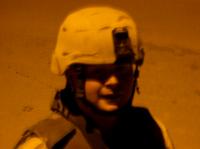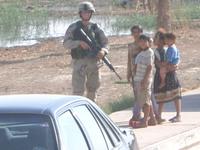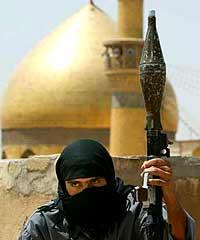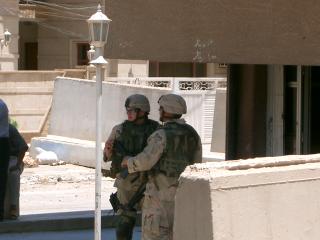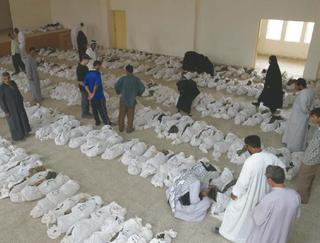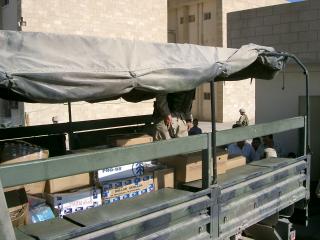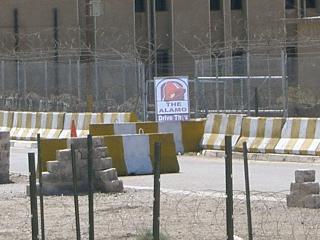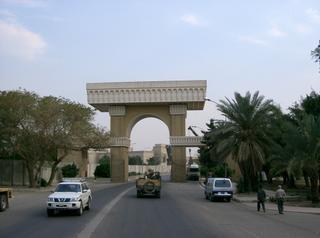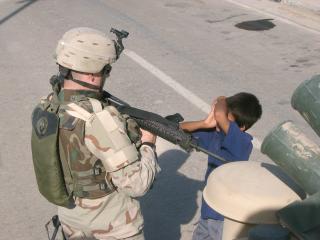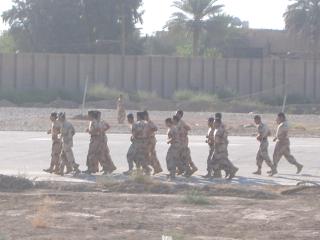Al Qaeda Manual Drives Detainee Behavior at Guantanamo BayBy Donna MilesAmerican Forces Press ServiceWASHINGTON, June 29, 2005 – If you're a Muslim extremist captured while fighting your holy war against "infidels," avoid revealing information at all costs, don't give your real name and claim that you were mistreated or tortured during your detention.
This instruction comes straight from the pages of an official al Qaeda training manual, and officials at the detention facility at Naval Station Guantanamo Bay, Cuba, say they see clear evidence that detainees are well-versed in its contents.
Police in Manchester, England, discovered the manual, which has come to be known as the "Manchester document," in 2000 while searching computer files found in the home of a known al Qaeda member. The contents were introduced as evidence into the 2001 trial of terrorists who bombed the U.S. embassies in Tanzania and Kenya in 1998.
The FBI translated the document into English, and it is posted on the Justice Department's Web site.
The 18-chapter manual provides a detailed window into al Qaeda's network and its procedures for waging jihad - from conducting surveillance operations to carrying out assassinations to working with forged documents.
The closing chapter teaches al Qaeda operatives how to operate in a prison or detention center. It directs detainees to "insist on proving that torture was inflicted" and to "complain of mistreatment while in prison."
Chapter 17 instructs them to "be careful not to give the enemy any vital information" during interrogations.
Another section of the manual directs commanders to teach their operatives what to say if they're captured, and to explain it "more than once to ensure that they have assimilated it." To reinforce the message, it tells commanders to have operatives "explain it back to the commander."
And at the Guantanamo Bay detention center, detainees take this instruction to heart. Many of the more than 500 detainees are "uncooperative" in providing intelligence, Army Brig. Gen. Jay Hood, commander of Joint Task Force Guantanamo, told military analysts who traveled to the facility June 24 and reiterated today during a hearing before the House Armed Services Committee.
Some detainees have never uttered a single word during more than three years of interrogation. Others give false names or refuse to offer their real names.
This can prove challenging for interrogators at the facility, because many detainees "follow the al Qaeda SOP (standard operating procedures) to the T," according to Army Col. John Hadjis, chief of staff for Joint Task Force Guantanamo.
Officials say they see evidence of the al Qaeda-directed misinformation campaign in allegations of detainee abuse and mishandling of the Koran at Guantanamo Bay.
Defense Secretary Donald H. Rumsfeld expressed frustration over this effort during a June 21 interview on the "Tony Snow Show."
"These detainees are trained to lie, they're trained to say they were tortured, and the minute we release them or the minute they get a lawyer, very frequently they'll go out and they will announce that they've been tortured," Rumsfeld said.
The media jumps on these claims, reporting them as "another example of torture," the secretary said, "when in fact, (terrorists have) been trained to do that, and their training manual says so."
During a February 2004 Pentagon news conference, a DoD official said new information provided by detainees during questioning is analyzed to determine its reliability.
"Unfortunately, many detainees are deceptive and prefer to conceal their identifies and their actions," said Paul Butler, principal deputy assistant secretary for special operations and low-intensity conflict.
Butler said the Manchester document includes "a large section which teaches al Qaeda operatives counterinterrogation techniques: how to lie, how to minimize your role."
The document, he said, has surfaced in various locations, including Afghanistan.
The manual's preface offers a chilling reminder of the mentality that drives al Qaeda disciples and the lengths they will go to for their cause.
"The confrontation that we are calling for ... does not know Socratic debates, ... Platonic ideals ... nor Aristotelian diplomacy," its opening pages read. "But it knows the dialogue of bullets, the ideals of assassination, bombing and destruction, and the diplomacy of the cannon and machine gun."




